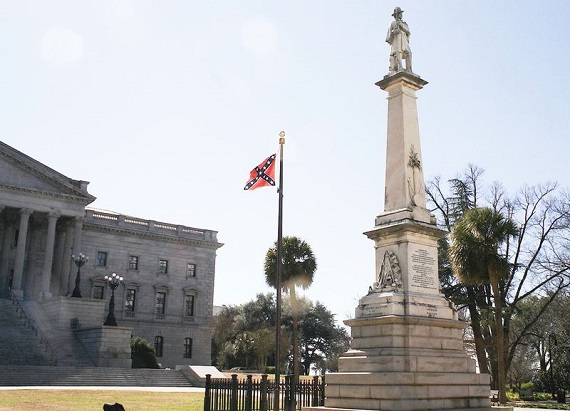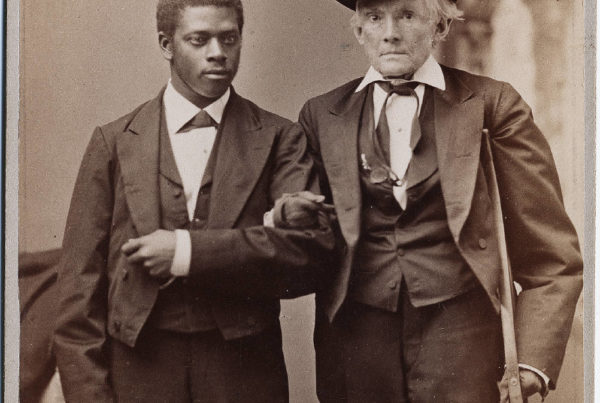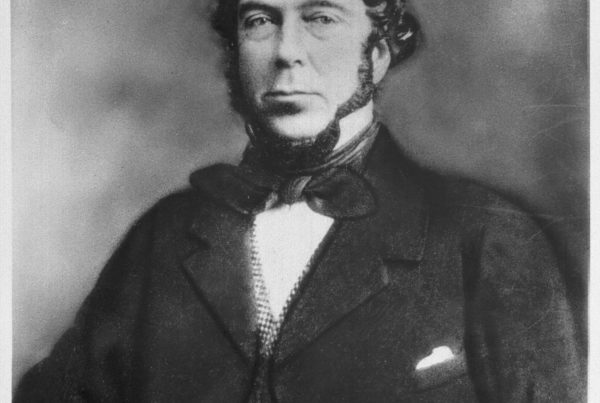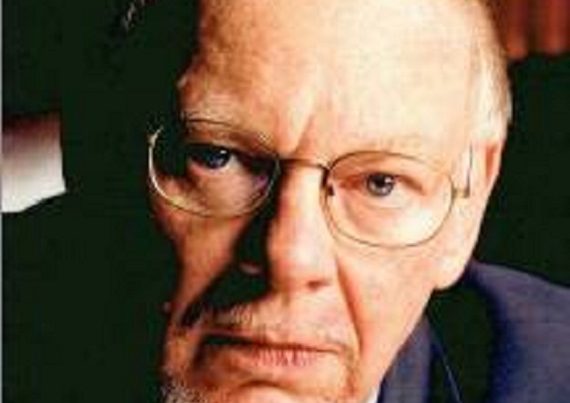I am honoured to be back in my native State (North Carolina) where the weak grow strong and the strong grow great.
We are here on this occasion both to remember our Confederate forefathers and to honour them in their heroic War for Southern Independence. We do right to remember and honour our Confederate forebears, first of all because they are OURS. They made us what we are. To honour forebears is a deep and healthy instinct in human beings. It has been truly said that we are what we remember.
We Southerners are especially fortunate in our forefathers. They not only won a place in the hearts of us, their descendants. They also won the lasting admiration of everyone in the civilized world who values courage, skill, sacrifice, and an indomitable spirit in defense of freedom. That is why our battle-flag, which is being suppressed in these United States, appeared spontaneously at the fall of the Berlin Wall and among peoples celebrating their liberation from the Soviet Empire.
Our forefathers are admired by the world to a degree seldom granted to lost causes. I find that thoughtful Europeans speak respectfully of the Confederacy, as did Winston Churchill. Foreigners have a great advantage in judging the right and wrong of the War between the States. They do not start out with the assumption that everything Yankees do and say is automatically righteous, true, and unselfish. They view Yankees without the rose-coloured glasses with which Yankees view themselves.
Lord Acton, an English historian who published many deeply-researched volumes on the history of liberty, wrote to General Lee in 1866. The defeat at Appomattox, Acton said, was a blow to the entire civilized world because it had reversed the progress of humanity toward constitutional liberty. And Lee replied: “All the South has ever desired was that the Union, as established by our forefathers, should be preserved and that the government, as originally organized, should be administered in purity and truth.”
The Yankees have been trying for 150 years to make us say that they were right and we were wrong. That we are all here today means that they still have not succeeded.
At the beginning of the Gettysburg campaign, James Johnston Pettigrew, one of our many Tar Heel heroes who gave their lives in the cause of Southern Independence, sent a letter to the folks at home. He wrote about the Confederacy:
“Our reputation, next to the Greeks, will be the most heroic of nations.” Pettigrew was a brilliant and learned man who had spent three years in Europe. He meant that in the long perspective of history, the human action most exemplary of heroism was the stand of the small Greek city-states against the mighty Persian Empire in the 5th century B.C. Next to that, most worthy of admiration in the same long perspective of history, would be the outnumbered soldiers and people of the South in their resistance to another ruthless invading horde.
There is a concerted effort underway by so-called professional historians to deny and denigrate the extraordinary heroism and sacrifice of the South in that war. I do not think they will get very far, as the facts are overwhelmingly against them. But Southerners, in trying to be good fellows and good Americans, have been a little too ready to accept the notion that the war was a gentlemanly and relatively fair contest. It was nothing of the sort. We give the Yankees much more credit than they deserve. In recent years they have been telling lies about us without stint. Their aim is for us to give up our history and accept their self-righteous myths. It is time we stopped playing nice and began to tell a few truths about them.
Let’s remember this part of our history clearly. The U.S. government, under control of a party that had no majority, launched a massive invasion of the South. They destroyed 14 democratically elected state governments, deprived our forefathers of their rights as American citizens, and did many other things that no American before 1860 could have imagined were possible. Though they had quadruple our resources, they were not able to defeat our armies, so the U.S. government launched an unprecedented war of terrorism against Southern women and children. General Sheridan, visiting Europe after the war, shocked the Prussian General Staff with his accounts of the Union Army’s actions. It is a fact that the militaristic Prussians, when they invaded France a few years after this, behaved much better toward civilians and private property than the U.S. government did in its invasion of the South. Just before the Spanish-American War the American press with filled with stories about the atrocities committed against the people of Cuba by the Spanish general Weyler, called “Butcher Weyler.” They did not bother to mention that Weyler had learned his trade as an observer with Sherman
Here is something else to keep clearly in mind as a vital part of the history of the South. It took 22 million Northerners four years of the bloodiest warfare in American history to conquer five million Southerners. We mobilized 90 per cent of our men and lost nearly a fourth. Not only our self-government but more than half of our property was lost. The war impoverished the South and enriched the politically-connected in the North. More than 300,000 foreigners were imported to wear blue uniforms so that many Yankees could stay safely at home and make money. Foreign visitors to the North said that they could see little sign that there was even a war going on.
Our fathers were true heroes. Man for man they fought better and endured impossible hardships because they had a better cause than their enemy. Let me give you a comparative statistic. About 12,000 North Carolinians lost their lives in World War II. If we project the loss of men in the Confederate War against the larger population of World War II, it would require 300,000 North Carolina deaths to equal the State’s loss of men in resisting the U.S. government invasion in the 1860s. No other group of Americans has EVER made a sacrifice that remotely approaches that of the South in its war for independence. Losses of the North in that war and of the United States in any war are negligible in comparison. Very late in the war, when defeat seemed inevitable, Northern generals were complaining that the Confederate soldier refused to give in and admit defeat, that Southern women remained indominitable in spirit, and that Southerners from the richest to the poorest were determined to keep on.
One of the popular themes among the South-hating historians today is to dwell on evidence of disaffection in the Confederacy. Of course, as in all human groups subjected to tremendous pressure, there were some slackers. But the real story of the Confederacy is in how little disaffection there was among a people subjected to such great sacrifices. What would have been the morale of the North if it had suffered a comparable extent of occupation, devastation and death as the South had by 1863, instead of enjoying a quiet and prosperous homefront. Imagine New York (instead of New Orleans) and Chicago (instead of Memphis and Nashville) occupied. Imagine Cleveland and Buffalo (instead of Charleston and Mobile) under siege. Imagine Pennsylvania and Ohio (instead of Virginia and Tennessee) overrun and ravaged. Imagine Washington (instead of Richmond) under constant attack. Imagine privation and sacrifice instead of prosperity the order of the day everywhere, thousands of civilians refugees, and nearly the whole male citizen population under arms. What would the Northern morale have been in 1863? Under such conditions the Southern people remained overwhelmingly game.
We are too quick to be generous in our accounts of the war, and thus detract from the honour due our forefathers. One example, the great Union victory at Gettysburg. Some victory! Lee’s army maneuvered freely on enemy territory for several weeks, even though the nearest Union army outnumbered him greatly and there were several other sizable Union armies within a few days’ march. When the battle came on, the much larger force remained stationary, unable or unwilling to maneuver. The Confederate army spent three days attacking a much larger force on its home territory. We barely failed of victory. Then we stopped attacking and went home. Lee’s army trekked back to the Potomac with vast herds of cattle and hogs, a 50-mile long wagon train, prisoners, and wounded, in knee deep mud without the larger, supposedly victorious, army attempting any serious harm, and remained an undefeatable fighting force for more than a year longer. Some Union victory.
Another bit of the Gettysburg story. Something like 10,000 black men, bond and free, accompanied the Confederate army to Pennsylvania—and back. The British observer Col. Fremantle observed one of these men marching Yankee prisoners to the rear. He wondered what the abolitionists in London would think if they saw that. Don’t expect to see it in the movie.
We Sons of Confederate Veterans are charged with preserving the good name of the Confederate soldier. The world, for the most part, has acknowledged the heroism of our forefathers, their “valour and devotion,” and their “unsurpassed courage and fortitude” in the words of General Lee’s farewell address. I want to call your attention to that part of the charge which makes “vindication of the cause for which he fought” a part of our duty toward the Confederate soldier. If we allow the cause for which they fought to be condemned, it will be impossible to preserve their honour despite their courage, skill, and sacrifice.
There has never been at any time a greater need to vindicate the cause for which our Confederate forefathers fought. I am sure you know about the campaign of vicious malice that is going on against everything Southern. It is pervasive at every level of the educational system, in the mass media, and among the politicians, including all Southern institutions and leaders. For much of the 20th century a kind of truce prevailed. The Truce went something like this: Northerners agreed to stop demonizing Southerners and to recognize that we had been brave and honourable and sincere in the war, although misguided in trying to break up the Union. Our Confederate heroes were accepted as heroes for all Americans. For our part, Southerners agreed, in exchange for a little respect, that we were glad that we were one country again and that we would be loyal Americans ever after, something which we have proved a thousandfold since. We have kept our part of the bargain but they have not kept theirs. Southerners are loyal to the United States but the United States does not return the favour.
Until fairly recently the Confederacy was an accepted and honored part of the American national heritage. American fighting men carried our battle flag as an honoured and familiar American symbol all over the world In World War II and other wars. Franklin Roosevelt, Harry Truman, and Jimmy Carter were not ashamed to be photographed with a Confederate battle flag. Times have changed. I can cite you instances where George W. Bush and Dick Cheney have taken extreme pains and coercive measures to avoid the slightest hint of association with any Southern symbol, even the song “Dixie.” These are not leftist radicals but so-called conservatives who would not have been elected without the votes of Confederate descendants. But they are desperately afraid of being contaminated by linkage with our flag, which is to us a beautiful and hallowed object, or with such examples of human depravity as our Confederate forefathers.
The goal of the concerted anti-Southern campaign that dominates our time, even being officially enforced by Southern public authorities, is to segregate the Confederacy off from American life as an evil thing to be despised and villified by all. They have broken the truce. We will make no progress until we recognize that the good times of the Civil War bicentennial are far behind us and start fighting the war that is actually here and now. In my opinion it is not merely the flag they hate. They hate us. They are determined to wipe everything Southern from the face of the earth. Our enemies have no heritage and do not even know what we are talking about when we mention heritage—pride in our own forebears.
It is important that we keep up observances such as this today. We are not merely making an historical commemoration. We are affirming and declaring our unbroken connection with our forebears and our continuing identity as Southerners. In the multicultural empire which the U.S. government is turning us into, our Southern heritage is fast becoming the only AMERICAN heritage left. It is up to us to do all we can to defend our honourable heritage in the spirit, at least, of our Confederate forefathers. It is not hard to defend our heritage if we show the endurance and skill of those we honour. Our heritage is intrinsically attractive. If we do not defend it well, your and my grandchildren will inhabit a world in which they do not even know who they are. It will be a bleak and sorry world indeed.







